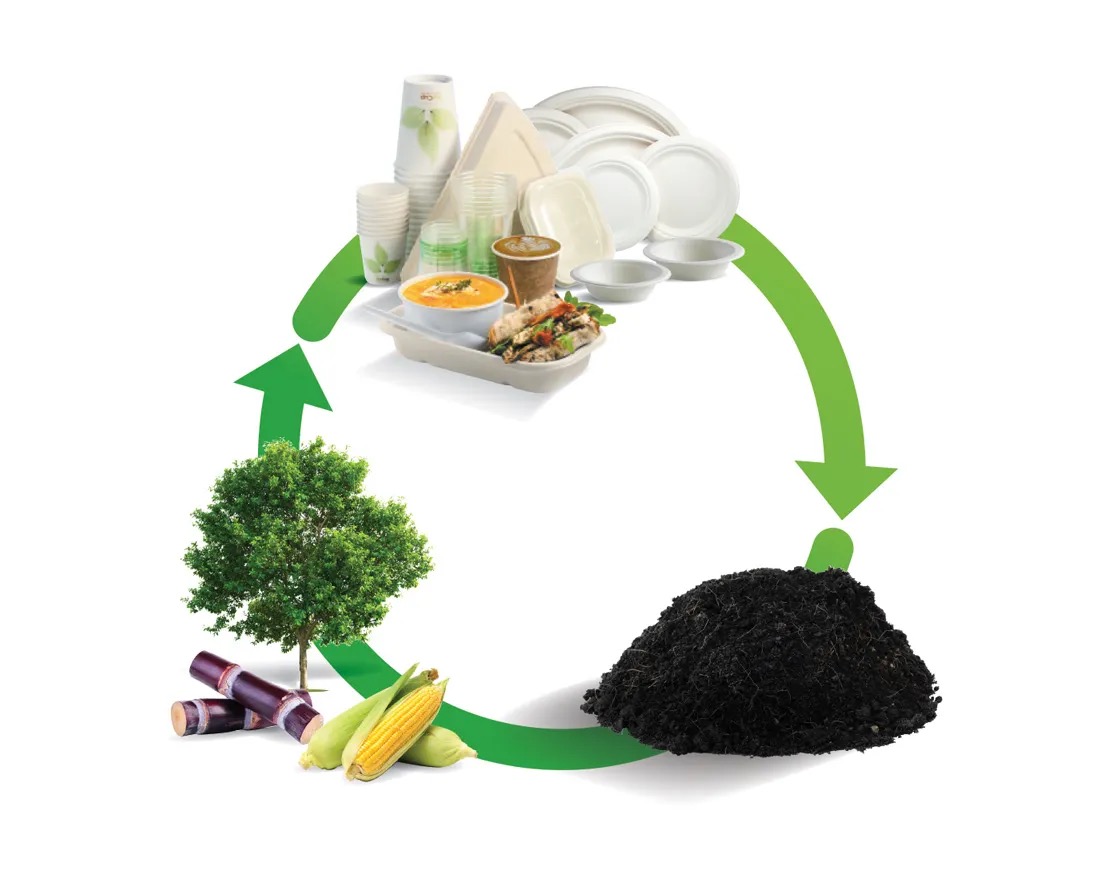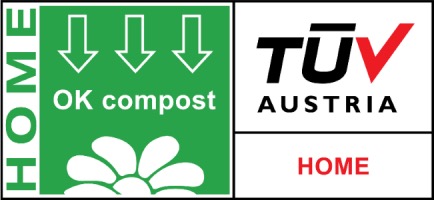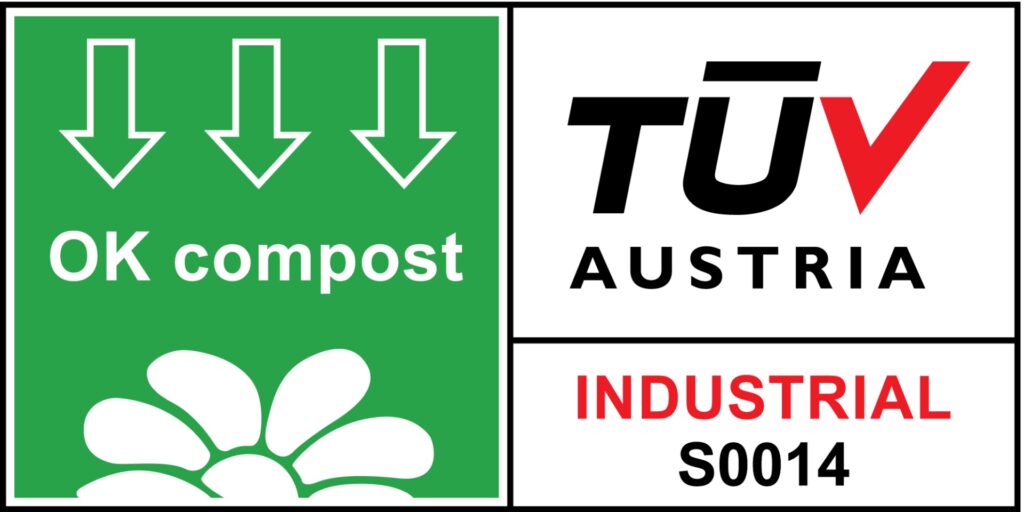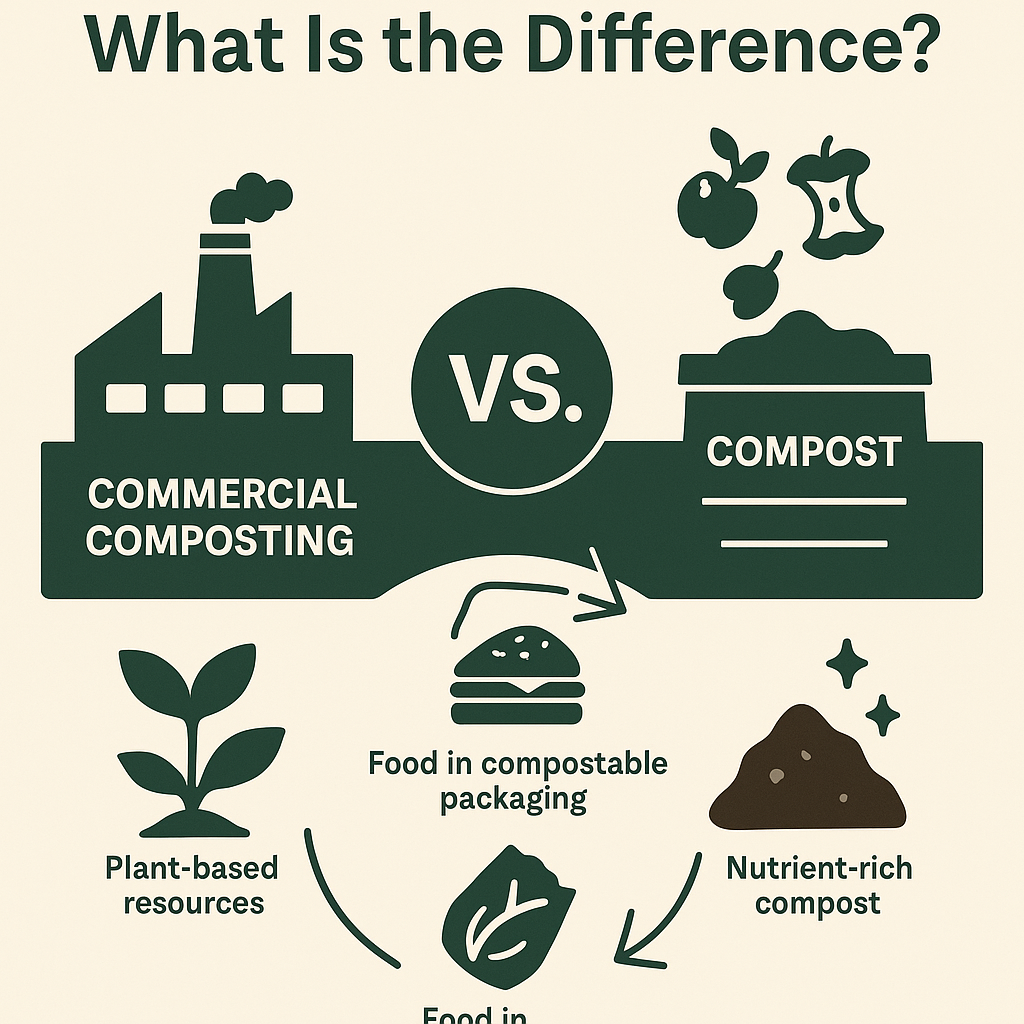Composting is a powerful way to reduce waste and support a sustainable future. But when you see compostable products—like packaging, utensils, or bags—you might wonder: Can I compost this at home, or does it need to go to a commercial facility? Understanding the difference between commercial and home composting is key to making eco-friendly choices that actually work.
What Is Composting?
Composting is the natural process of breaking down organic matter—like food scraps and garden waste—into nutrient-rich soil called humus. It requires a balance of heat, moisture, oxygen, and microorganisms. But how those conditions are managed depends on the composting method.

✅ Key Differences Between Commercial and Home Composting
| Feature | Home Composting | Commercial Composting |
|---|---|---|
| Location | At home: backyard, bin, or balcony | Large-scale industrial facilities |
| Processing Time | 3 to 12+ months | 90 to 180 days (faster) |
| Temperature | Ambient (cold) | High-heat (130–160°F / 55–70°C) |
| Accepted Materials | Fruit, veggies, leaves, coffee grounds | Bioplastics, compostable packaging, meat, dairy |
| Control Over Conditions | Minimal | Strictly monitored |
| End Product | Soil conditioner for home gardens | Commercial-grade compost for agriculture or landscaping |
What Is Home Composting?
Home composting involves using a compost bin, pile, or worm system to break down household waste. It’s ideal for:
- Fruit and vegetable scraps
- Coffee grounds and tea bags
- Garden clippings and leaves
- Eggshells and paper towels
However, it’s not suitable for:
- Compostable plastics or packaging (they need high heat)
- Meat, bones, and dairy (can attract pests)
- Large volumes of waste
Since temperatures stay low in most backyard systems, materials break down more slowly and not all compostable products will fully degrade.

What Is Commercial Composting?
Commercial composting facilities process organic waste at high temperatures and controlled conditions. This allows them to handle:
- Certified compostable bioplastics and packaging
- Food-soiled paper and compostable takeout containers
- Meat, fish, bones, and dairy
- Large-scale food waste from businesses
Benefits of commercial composting:
- Faster decomposition
- Can handle more complex materials
- Produces consistent, high-quality compost
- Reduces landfill waste at a broader scale
Note: Access to commercial composting depends on your region. Many cities offer curbside compost collection or drop-off points.

Which One Should You Use?
It depends on your waste type, space, and local services.
- Use home composting if you want to manage kitchen and garden waste personally and have space for a compost system.
- Use commercial composting if you’re dealing with compostable packaging, certified compostable plastics, or live in an area with curbside compost pickup.
If your product says “commercially compostable only,” do not put it in your home compost. It may not break down properly and could leave residue behind.
How to Identify Compostable Products
Look for certifications:
- Home Compostable: Look for TÜV Austria OK Compost HOME, ABA Home Compostable, etc.
- Commercial Compostable: BPI (US), TÜV OK Compost INDUSTRIAL
Also check the disposal instructions. Some packaging may look eco-friendly but requires industrial treatment to fully decompose.
Final Thoughts
Both home and commercial composting play essential roles in reducing waste and closing the loop. Understanding the difference ensures that your efforts to go green are effective—not just well-intentioned.
If you’re a business looking for home compostable or commercially compostable packaging, make sure to choose the right certification, material, and disposal instructions to help your customers dispose of your packaging properly.
FAQs
Can compostable bags go in home compost bins?
Only if they are home compostable certified. Most compostable bags are industrial-grade.
Can compostable plastic break down at home?
Usually not. Compostable plastics need high temperatures only found in industrial settings.
What should not go in home compost?
Avoid meat, dairy, oils, and commercial compostables. These can cause odors or fail to break down.
Want Custom Compostable Packaging That Fits Your Sustainability Goals?
At Hemcbags.com, we offer wholesale compostable packaging—both home and commercial grade—designed for eco-conscious brands. Contact us to learn more about materials, lead times, and certifications.

